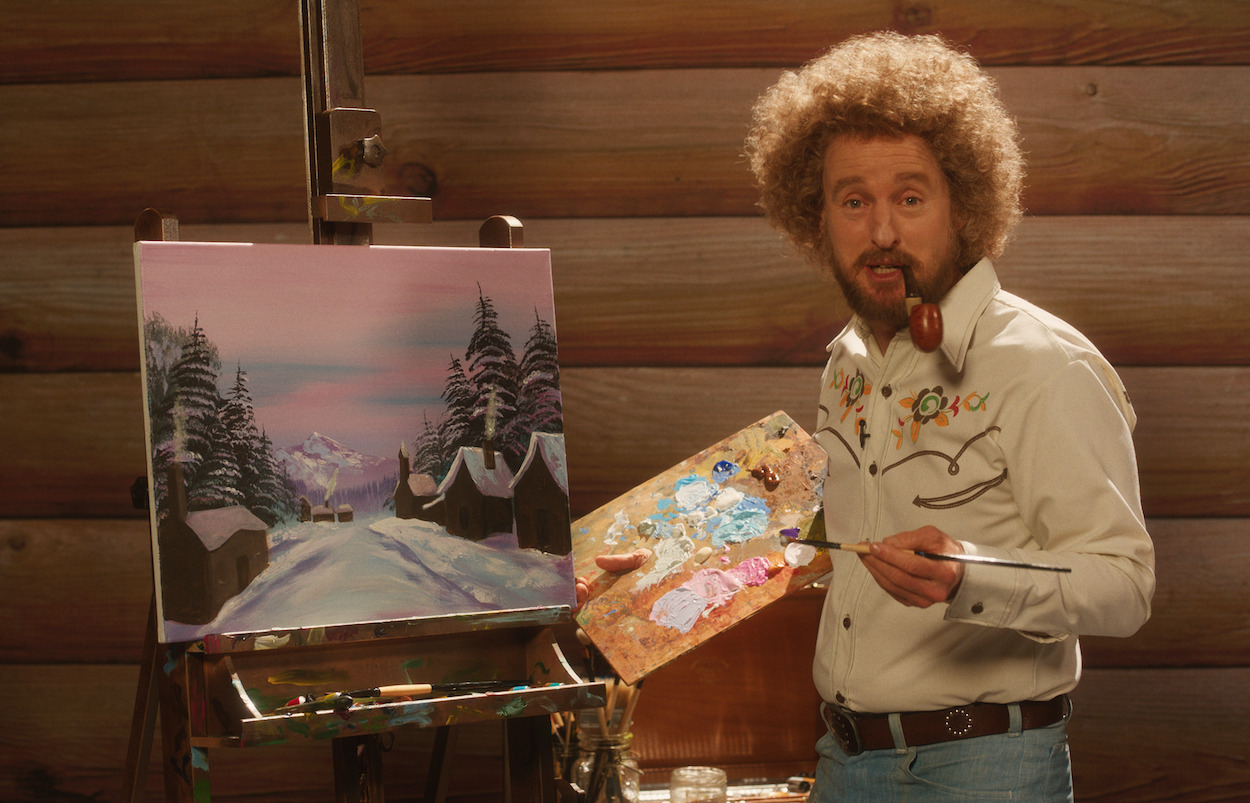Bob Ross never cared to brag about his creative prowess; rather, he painted to show how good of an artist you, the viewer, could be. Throughout the run of The Joy of Painting, which aired on PBS for 31 seasons across more than 400 episodes, the late art instructor’s dulcet instructions cosseted viewers as they completed oil paintings of serene landscapes along with him or simply watched for the ASMR of it all. But lingering underneath Ross’s wispy afro are some murky allegations of womanizing and an ugly legal dispute over his estate that ultimately did little to quash public perceptions of Ross as a wholesome, tender-hearted figure.
So avid fans of Ross—and there are millions—will perhaps take issue with how his likeness is portrayed in Paint, a new film starring Owen Wilson as a knock-off of the beloved figure. His character, Carl Nargle, has carved out a successful career as a televised painter of quaint bucolic vistas on a public access channel in present-day Vermont that, as one critic describes, is “suffused with a twee, ‘80s-lite vibe.” Though popular with viewers, his career snags when he gets replaced by a new host, Ambrosia, a younger, more efficient upstart painter. After she brings in better ratings, the network fires Nargle and he’s relegated to teaching at a local university.
Throughout, sordid scandals involving Nargle’s unscrupulous relationships with women cast a shadow over Ross’s legacy while messily sidestepping it. The local paper describes Nargle as a washed-up “sexist” while Ambrosia tells him “You used your brush to seduce and destroy the people who loved you.” Yet all of his transgressions are depicted off-screen, manifesting blithely as women swooning behind the camera, hoping to get in the foldout bed inside the painter’s orange van.


